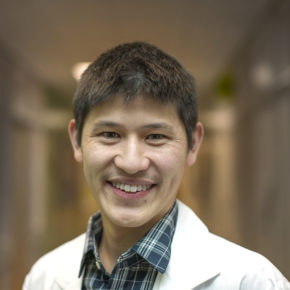Dr. Cheung is a Plastic and Reconstructive Surgeon and a Mid-Career Clinician-Scientist at CHEO. He is an Assistant Professor of Surgery at the University of Ottawa. His clinical interests include congenital hand differences, brachial plexus injuries, and trans health. His research focuses on hand and wrist trauma, patient experience, and machine learning innovations related to reconstructive surgery. Dr. Cheung is a Principal Investigator on multiple studies at CHEO and the University of Ottawa.
Areas of Research: Quality Improvement
Research Projects
-
Predictors of True Scaphoid Fractures in Children
27/02/2024
This study is a retrospective cohort study of children presenting to a tertiary pediatric hospital with hand or wrist injuries. Patients were grouped based on the presence of a true scaphoid fractures (confirmed on imaging) or those with clinical suspicion of a scaphoid fracture alone (no radiographic evidence of fracture). Demographic and clinical characteristics were compared with univariate and multivariate statistics to identify fracture predictors.
-
Management and Outcomes of Clinical Scaphoid Fractures in Children
17/05/2022
Management of clinical scaphoid fractures at our institution was relatively uniform: nearly all patients were immobilized and less than 20% received advanced imaging. Our findings suggest a low but non-zero occult scaphoid fracture rate, discordance in radiologic interpretation, and lack of advanced imaging, providing an avenue for future prospective studies.
-
Multidisciplinary Practice Variations of Anti-Thrombotic Strategies for Free Tissue Transfers
23/06/2021
There are diverse practice variations in anti-thrombotic strategies for free tissue transfers and a difference in perceived risk factors for flap failure that may affect patient management.
-
Hands-On Workshops Improve Emergency Department Physicians’ Self-Reported Understanding of Pediatric Hand Injuries
18/05/2020
Knowledge sharing between specialists and generalists through combined didactic and hands-on workshops is an effective and well-received method of refining physician knowledge and increasing confidence in treating subspecialty-specific clinical presentations.

